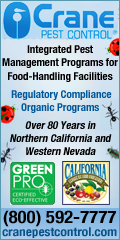
| Archives/Subscribe | www.clfp.com | Contact Us | July 2, 2013 |
CARB Workshop Focuses on Potential Amendments to AB 32 Regulations
On Wednesday June 26, the California Air Resources Board (ARB) staff held a workshop on potential revisions to ARB’s Mandatory Reporting Regulation (MRR). The staff proposed revisions included amendments to the California’s Cap-and-Trade Program (Program) as well as the Mandatory Reporting Regulation the Fee Regulation.
The workshop looked at a series of issues and at developing proposed amendments to the Cap-and-Trade Regulation and the MRR for consideration by the ARB Board this fall. Below is a summary of the topics of note for food processors that staff will be considering over the next few months:
Emissions Leakage
Trade exposure continues to be of major concern to the ARB. Staff reported that the Board continues to direct staff to complete current studies of leakage risk and "evaluate options for ensuring the competitiveness of California industries." In addition, staff indicated that they are considering proposing new leakage classifications as well as modifications to existing leakage risk determinations based on the results of the current leakage studies underway. The Board told staff that it wanted the leakage classification changes, if necessary, prior to the start of the second compliance period.
Product-Based Benchmarks
The effort by staff to identify and propose new benchmarks and allowance allocations for manufacturing of new products in California continues unabated. Food processors, as well as other production entities subject to the Cap-and-Trade, continue to be evaluated. Staff affirmed that they will propose new product benchmarks for the following activities currently under the energy-based methodology: eight food processing sectors, foundries, metal casting, metal forging, and ethanol production.
Offset Program
The availability of offsets continues to be a major focus for ARB. Staff has been ordered to evaluate and clarify the processes related to offset program. Currently, staff is only considering specific requirements such as project listing, monitoring and reporting, and verification. Other topics mentioned include compliance offset credit issuance, timing and deadlines, and roles of air quality districts. The lack of progress by the ARB in approving new offsets is likely to drive the discussion beyond the limited topics put forth by staff. Currently, staff announced they will propose quantification methodologies for two new proposed compliance offset protocols: coal mine methane and rice cultivation practices.
Cost Containment
Allowance price cost containment has jumped to the forefront of discussions at ARB. Pursuant to a Board resolution, staff has been ordered to evaluate and propose amendments to ensure that allowance prices will not exceed the highest price tier of the Allowance Price Containment Reserve (APCR) while minimizing the impact on existing allowances and maintaining the environmental integrity of the Program. On Tuesday June 25, a workshop was held to discuss the potential that market conditions (think economic uptick) could develop that have the potential to raise allowance prices above levels deemed acceptable in the existing cost containment features of the program. At the workshop, staff limited its analysis to non-market examples (drought driven power prices, increased emissions from development of the Monterey Shale, i.e. "fracking"). The invited expert economists were all in agreement that a "non-trivial possibility" existed that the current cost reserve could be exhausted, but they downplayed that likelihood and had differing suggestions as how to deal with such an occurrence.
Allowance Allocation Energy and Natural Gas
Staff is continuing to work on revising the allowance allocation approach for the petroleum refining sector in the second and third compliance period. However, staff recently held a workshop to obtain public input on the allowance allocations for suppliers of natural gas, which will have a compliance obligation beginning with the second compliance period. The outcome of this effort will have a significant impact on natural gas transportation costs for food processors.
Combined Heat and Power
Staff continues to work with the California Public Utilities Commission and the Energy Commission to develop a methodology that exempts the steam and waste heat emissions for all facilities that would not be included in the Cap-and-Trade program "but for" their investment in combined heat and power (CHP). A draft of the proposed regulatory language is expected to provide for a process to identify CHP units for an exemption.
Universities
The Board directed staff to develop a methodology to allocate allowances to California universities that recognizes early actions to reduce GHG emissions, specifically investments in energy efficiency and CHP. The ARB has called for the direct allocation of allowances to California universities that are covered entities. If adopted, this will decrease the amount of allowances available under Cap-and-Trade for obligated entities with the potential to increase the cost of remaining allowances.
Other topics for potential change that were discussed include:
|
|
| CALIFORNIA LEAGUE OF FOOD PROCESSORS 2485 Natomas Park Dr., Suite 550 Sacramento, CA 95833 Phone: (916) 640-8150 Fax: (916) 640-8156 www.clfp.com |
 |


